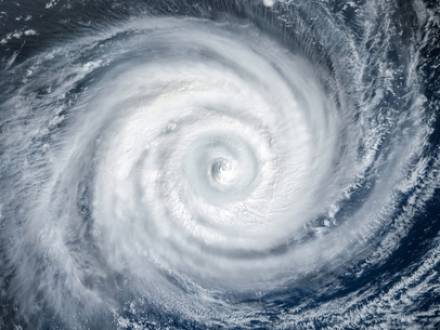Contact Our Firm
The use of the Internet or this form for communication with the firm or any individual member of the firm does not establish an attorney-client relationship. Confidential or time-sensitive information should not be sent through this form.
I have read and understand the Disclaimer and Privacy Policy.

A Landlord’s Guide to Hurricane Damage
 If you live in Florida, you know that as wonderful as it is to live in paradise, hurricanes are a significant and often costly downside. The 2024 Atlantic hurricane season so far has brought 17 named storms, including 11 hurricanes total and five major hurricanes. Hurricanes Milton and Helene caused significant damage in Florida.
If you live in Florida, you know that as wonderful as it is to live in paradise, hurricanes are a significant and often costly downside. The 2024 Atlantic hurricane season so far has brought 17 named storms, including 11 hurricanes total and five major hurricanes. Hurricanes Milton and Helene caused significant damage in Florida.
Landlords in Florida are particularly vulnerable to the property damage and financial issues with tenants that hurricanes can cause. Considering this ongoing threat to Florida landlord property, your Florida real estate attorney can advise you on your rights as a landlord after a hurricane hits.
Preparing for a Hurricane
The old saying that an ounce of prevention is worth a pound of cure is as true as ever when it comes to preparing for hurricane season as a Florida landlord. Some things to keep in mind as you prepare your property for hurricane season, particularly as you draft or review your lease, are to:
-
Draft a landlord-friendly "force majeure" clause in your renter contract that will govern landlord rights and responsibilities in the event of a major natural disaster.
-
Ensure you are covered by insurance, and that the tenant also obtains insurance for their personal property.
-
Review the maintenance and repair terms in the lease and undertake period inspections to ensure the property is storm-ready.
-
Include a casualty provision that sets out your and the tenant’s responsibilities in the event of property damage, ensuring it complies with Florida law.
Property Damage After a Hurricane
If the property has been damaged, there may be issues to resolve with your tenant about who is responsible for repairing the property, and you may be facing a dispute with your tenant. Florida law does not require landlords to prevent hurricane damage, but landlords must promptly make repairs necessary for the property to be inhabitable.
If the property is damaged but the tenant refuses to cooperate to allow you to repair it, you may enter the unit at any time within reasonable notice to protect or preserve the property. Under Florida law, the tenant cannot unreasonably withhold consent to enter the premises for you to:
-
Inspect the property from time to time
-
Make necessary repairs
-
Supply agreed services
-
Show the unit to contractors or workers
Reasonable notice is usually giving the tenant 24 hours’ notice that you or your contractors are coming to inspect the damage or repair the property.
What to Do If Property is Uninhabitable
If the property is uninhabitable, your tenant may be able to terminate the lease. Florida law provides that if property is damaged other than by the tenant so that their living conditions are "substantially impaired," they may terminate the rental agreement and vacate the premises.
If only a portion of the property is uninhabitable, the tenant can leave the uninhabitable portion and pay a reduced rent proportional to the uninhabitable portion.
Contact Our Fort Lauderdale, FL Landlord Lawyer for Help
Whether your property has faced hurricane or tropical storm damage, a tenant action resulting from hurricane damage, or you simply want to prepare for any eventuality, the law firm of The Elliot Legal Group, P.A. is here to advise you on the proper legal course of action. The Broward County, FL landlord real estate attorney can provide you with the right legal support. Contact us at 754-332-2101 today for a professional consultation.















